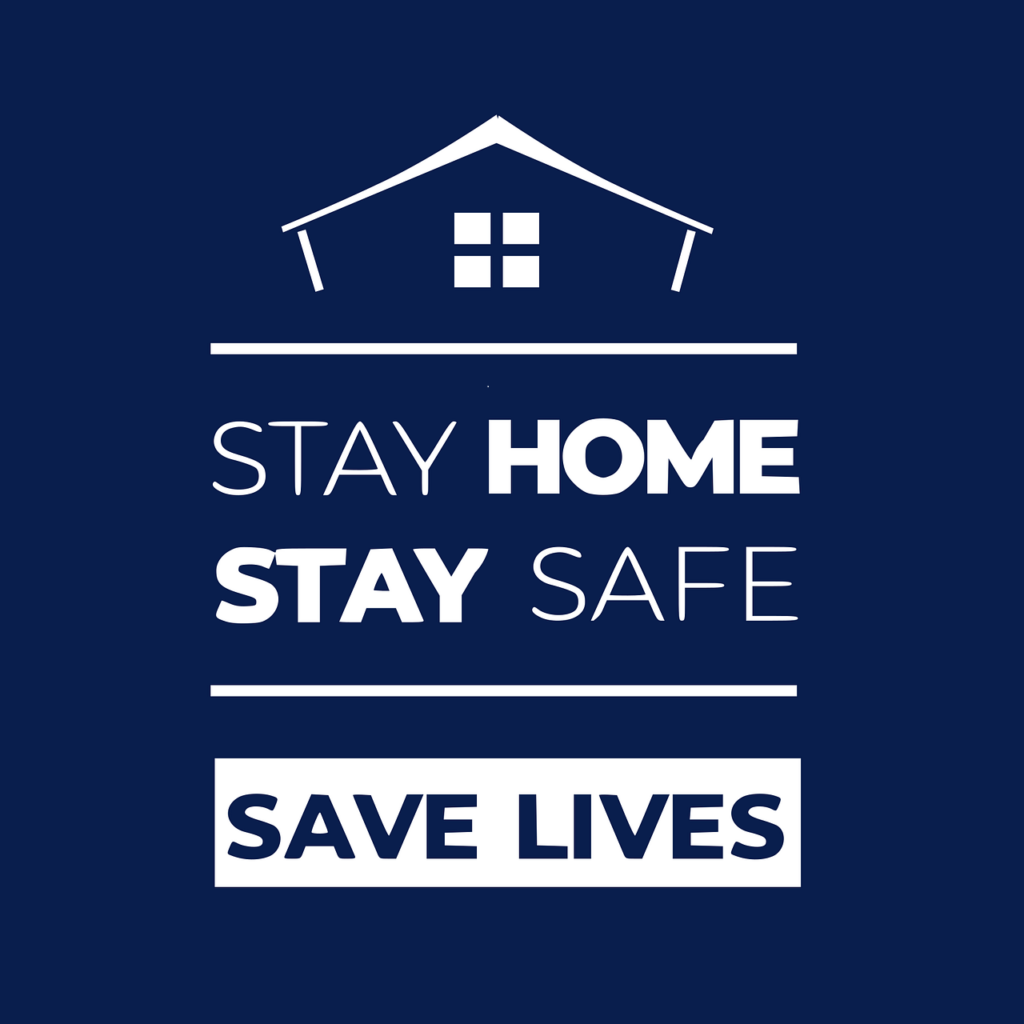A recent RieOrganize! poll on Facebook came up with the following: Stay at home. Boredom. Facebook. Zoom meetings. Gratitude for front line workers. Frustration about having to wear a mask. Death. Telecommuting. Homeschooling. Social isolation.
Until recently, I knew of only a handful of friends who were dealing with COVID-19. Most were friends who live out of town or who were dealing with their friends/family members who were dealing with the virus. Yesterday, I was told that a friend is in the ICU with novel coronavirus. While we were not close friends, we did keep in touch over the 30+ years that I’ve known him and his husband.
What I realized today, however, was how much I did not know about them. For instance, who is my friend’s next of kin? My immediate answer would be, of course, his husband. But his husband died last week of a non-coronavirus-related illness. I don’t know if he has a health care directive or, if he does, who is listed as the alternate proxy because his husband just died – or where this document is located. I know that his husband took care of most of their financial, legal and daily responsibilities. I don’t know who will be responsible for all of that now and, more importantly, nor does anyone else. Everyone is scrambling to try to figure out what to do!
While this is indeed stressful and sad, I have to ask myself and you…
· How many of us or our friends or family members could find themselves in a similar situation?
· Have we taken care of our own medical, legal and financial paperwork? If we have, does anyone know where it is located or have easy access to it?
· Will you or someone you know find themselves sick or dying alone with no one who knows what you would want to happen medically or, if you should die, with your belongings?
According to our informal Facebook poll, not everything in our world today is discouraging, heartbreaking, disheartening or grim. Looking at some of the memes on Facebook or Instagram can make you smile or laugh out loud.
There is little wrong with cooking or baking too much, using Zoom or Facetime to be connected to friends, relatives and colleagues, binge watching Netflix or taking naps. There is much kindness, laughter and sharing. Neighbors are helping neighbors.
This can be a time of transformation – interpersonally, socially, economically and globally. It can be a time to focus on the people and things that are important in our lives.
And this is where we all come in to transform our world into a better place in which to live. Thinking about medical and financial preparedness is not high on most people’s lists of things they want to do, but, especially during this time, it is essential.
First, we should examine our own paperwork. How prepared are we? Then, we should take a look at our contact lists. Who do we know who may need help?
Few people want to talk about the possibility of being sick or dying. In this age of COVID-19, it is imperative that we do so and that we talk with those whom we love and help them to prepare as well.
This is something that cannot wait. Please take steps to ensure that someone will know what you want to happen if you are unable to speak for yourself.
Stay well, stay safe and stay home… and if you are one of the many who must go to work to keep us safe, healthy, fed, informed or otherwise (relatively) sane, thank you.

Over the past 3 years, I’ve called three different NAPO colleagues to help me with my own organizing projects. Each time it was a fantastic experience. Not only did I get stuff done, I really got an appreciation for what it feels like to be the client AND as a result, I am a better Productivity and Organizing Consultant!
I hired professional organizers (or PO’s) to help me:
Here are some key takeaways from these sessions:
I was thrilled by what I got done: cleaned out an overwhelming amount of stuff so I could close down my mother’s apartment, became very tech-comfortable, and am feeling stylish and well-dressed like never before. The gratitude I feel towards these organizers is immense.
I close by urging all PO’s who have never hired another Professional Organizer to do so. Everyone can improve their productivity and up their level of being organized. And you’ll have much greater understanding and empathy for your clients!
Personal property is “in motion” when there is a need to deal with your movable personal possessions. Items include furnishings, art, antiques, jewelry, and collections — often referred to as “stuff.”
What puts Personal Property in Motion?
• Moving & down-sizing living space
• Selling a local home to move full-time to a vacation home
• Inheriting items when your home is already full
• Deciding to sell a personal collection
• Making a decorating/design change or upgrade
• Getting organized to deal with stuff which has accumulated over the years
• Settling an estate
Suggestions for dealing with emotions when Property is in Motion
• Pictures can help retain the memory of items. Remembering special rooms, spaces, items, and collections through picture albums can help minimize the sense of loss. The pictures, when stored and retrieved electronically, take up no physical space.
• Providing family and friends with the opportunity to acquire items helps in many cases. Passing along sentimental items, in this way, often feels good.
• Recognize it is now normal when family and friends are not interested in many of your furnishings and treasures. Unfortunately, I see this in the majority of people I have worked with in recent years. It helps to not take it personally. When this happens, it is time to sell, donate, or dispose.
Identifying and selling valuable personal property:
• Unfortunately, what you or your family paid for items does not matter to buyers.
• The buyers are generally significantly younger than the sellers. Current market value is driven by what buyers demand.
• When you look to sell valuables directly to a buyer, knowing the current market value is helpful in setting and negotiating a fair price.
• Auctions are an efficient way to deal with significant amounts of personal property in motion efficiently; there are auctions available at every level.
• Higher-end auction houses are an efficient resource in identifying valuable items and their market value; there is generally no charge for this service.
• When selling valuables at auction, it is important to use an auction house which regularly offers similar items. They will have established clientele and attract strong bidders.
Very often, a handful of the most valuable personal property items are worth as much as everything else (you’d hoped to sell) combined. When this happens, half of the financial work in handling the property in motion is complete, simply by identifying and selling the most valuable items.
The process of dealing with property “in motion” brings out emotion. There are memories attached to belongings which connect us to our family, friends, and occasions throughout our lives. While the process may have emotional ups and downs, it feels good when it is complete. I wish you well.
Click on the title above to learn more about the featured author.
 “How can I make my parents organize their papers? They gave me power of attorney and named me as executor, but I don’t know where anything is.” I receive phone calls like this several times each year. The caller is usually fearful, frustrated, and worried about the state of the parents’ affairs.
“How can I make my parents organize their papers? They gave me power of attorney and named me as executor, but I don’t know where anything is.” I receive phone calls like this several times each year. The caller is usually fearful, frustrated, and worried about the state of the parents’ affairs.
Each time I hear this question, or one like it, I’m reminded of the old lightbulb joke:
Q: How many psychologists does it take to change a lightbulb?
A: Only one, but the lightbulb has to want to change.
The same is true for a disorganized loved one – they have to want to change their situation. But even though we can’t make them change, there are a few things we can do to pave the way for them to request help.
First, a few things to remember:
In short, your parents likely feel some level of embarrassment or vulnerability. To be successful, you will need to be sensitive to their discomfort, and respect their pace. Here is the sequence I recommend to clients who are preparing to assume their parents’ affairs:
It might take a few iterations to build some momentum with your parent. The key is to respect your parent’s preferred pace. In time, your parent may trust you enough to delegate work to you, or let you hire a professional organizer.
Click on the title above to learn more about the featured author.
 “I’m cleaning out my parents’ home and coming across lots of items with sentimental value, how do I decide what to keep?” A friend asked me this question recently. Like so many of us will do in our middle years, she’s facing the dual challenge of grieving while dispersing all of her parents’ possessions. If she’s also the executor of her parents’ estate, she’ll have bills, paperwork, and the responsibility of staging and selling the home as well. It’s a lot to handle at a fragile time. The key to getting through this is to do it in waves, as you have the time and energy.
“I’m cleaning out my parents’ home and coming across lots of items with sentimental value, how do I decide what to keep?” A friend asked me this question recently. Like so many of us will do in our middle years, she’s facing the dual challenge of grieving while dispersing all of her parents’ possessions. If she’s also the executor of her parents’ estate, she’ll have bills, paperwork, and the responsibility of staging and selling the home as well. It’s a lot to handle at a fragile time. The key to getting through this is to do it in waves, as you have the time and energy.
Below are some suggestions on how to handle the process.
Remove items associated with your parents’ illness. Unless the death was sudden, there’s likely some assortment of medications and medical equipment. Getting these out of the way first will help you release the more recent painful memories and make space for joyful memories to surface. Check Earth911 for places that will accept these items. Some charities and thrift stores, such as Care & Share Thrift Shoppes in Souderton, PA accept medical equipment.
Locate and have the executor disperse any property according to your parents’ wills. If you can’t find some of the items, make a list and leave it in a prominent location. You’ll likely come across the remaining items as you continue to work through the house.
Give away or donate everyday items that don’t hold any particular sentimental value. Usually a fair amount of clothing, kitchen items, books, knick-knacks, small furniture, linens, and items in deep storage (attic/garage/basement) fall into this category. Continue to keep any individual items that you’re unsure about.
At this point, most of what will be left has a chance of being important to you or your family. If you have the luxury of time, invite your relatives to your parents’ home for a ‘claiming memories day‘. Disperse any remaining items mentioned in the will, and open everything else to be given away as keepsakes. The executor may want to set some parameters for this, such as taking turns. Many families find that storytelling naturally emerges from this process. You’ll probably have a lot of tears and laughter. Don’t rush; it’s a precious part of the healing process.
Can you give yourself a little more time at this point? If so, take a break. You’ve fulfilled the requirements of the will, disposed of unnecessary items, and preserved the most important memories. More often than not, some rest and a return to your normal schedule will restore your resilience, stamina, and creativity.
When you’re ready to return to your parents’ home, it probably won’t feel so emotionally charged or overwhelming. You’ll have the confidence of knowing that you won’t accidentally destroy a precious artifact, stumble across an unpleasant memory, or be overwhelmed with unimportant things. In short, you’ll be dealing with the middle ground of your parents’ possessions.
As you work your way through these remaining items, ask yourself a few questions:
-Do I need this to stage the house?
-If I take it home, would I definitely use it?
-Do I know anyone who could use this?
-What charities did my parents support? Do they accept donations?
You’ll likely end up donating or giving away most of these final items. Keep reminding yourself that you already saved the most important things. As the house empties, you may be sad. That’s healthy. Do the work that is easier for you and harder for your family, and ask them to do the same for you. Be gentle with yourself and each other.
Most importantly, cherish your memories as they are the most important thing you’ll keep.
No Need to Hold onto Things for the Next Generation
When I give workshops, I am asked over and over again about what should be saved for children; if you don’t have children, you may be saving these things for friends or other family members. Many parents seem to think their children want what they have, so they hold onto items for when these children will appreciate these things. Items range from baby clothes to games to books to schoolwork to china to sterling silver and include tons of paperwork.
I have a client, with whom I have been working, whose father saved every personal and business record. He had checks from 1949 to the day he died. He had his and his wife’s medical records from the 1960’s (both of whom are now deceased), 8 estates that he had settled, and business records back to the 1960’s (including his stationery and business cards – from long retired positions). While everything was very organized and labeled, sorting through it has been a tremendous burden on his daughter.
Two 4-drawer file cabinets, one 2-drawer file cabinet, 2 desks, book shelves, and chairs had been used to store this paperwork. We are shredding and recycling 98% of these records. My client wants to go through everything to make sure there is nothing of value hidden away. We have talked about why her father would have saved all of this and cannot come to any satisfying conclusion.
Not only is there paperwork, but there are also items from grandparents and other relatives. Again, my client is going through all of this to figure out what she wants to keep and what she wants to donate or sell. Since her brother does not live in the area, she has to go through all these things by herself and save some things for him to go through, including his own items.
If you are saving things for your children/friends/other family members, please ask them if they want anything. If they say no, then either sell, donate, recycle, shred, or trash the items. There is no reason for you to hang on to this stuff, unless you really want it. If it is packed away and not being used, and no one in your family wants the items, give them away now so someone else may really be able to appreciate them.
Also, keep on top of your paperwork — shred or recycle old records. Settling an estate can take a lot of time. You can significantly speed up the process by getting rid of paperwork and any unused or unwanted items now.
This type of activity will not be one of your more fun things to do, but it sure will save time and heartache in the future. The lesson my client learned from all of this is to purge and continue to get rid of those things now that she no longer needs or wants. What are you going to do now with your unwanted and unnecessary items and paperwork?